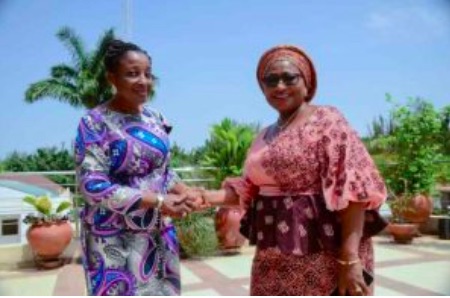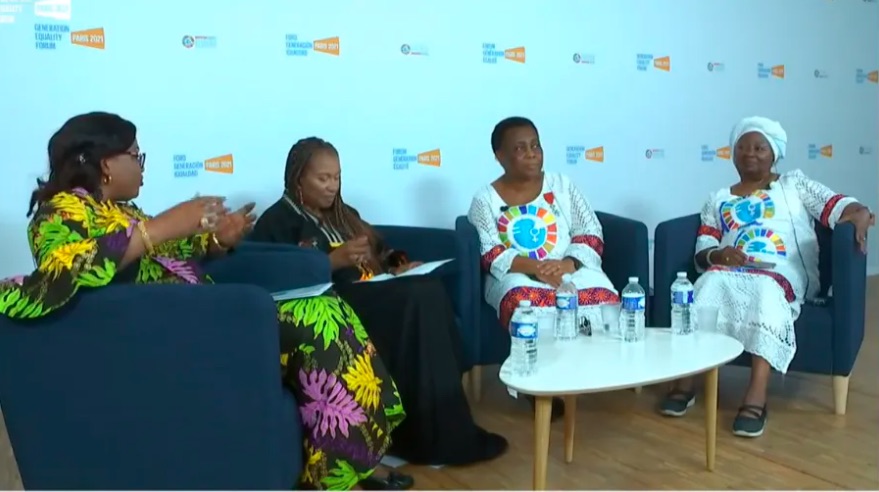EDUCATION FOR PEACE .
An article by Graciela Mandolini from Education International
We live in a historical time in which all kinds of emergencies are constantly being played out: environmental, climate, energy, health, economic … All of these converge in what many authors define as the crisis of civilization. The environmental agenda has been setting the pace and environmental conflicts have burst into school settings, appearing with unprecedented speed and persistence.
If we understand education as a process that is permanently under construction, we could say that teachers in Argentina are carrying out some important actions in terms of comprehensive environmental education. These include interventions in curricular designs, as well as in projects and programs aimed at incorporating the environmental dimension for sustainable development as part of teaching-learning proposals.

Teacher and Union Training School
For 25 years, the Confederación de Trabajadores de la Educación de la República Argentina (CTERA) [Educational Workers Confederation of the Argentine Republic] has generated teacher training processes in Environmental Education: postgraduate courses and specializations in environmental education for sustainable development, in cooperation with public universities, face-to-face meetings with in-service teachers, projects, programs and actions on environmental education for secondary school students and teachers… practical, recreational and learning activities have also been organized, such as planting trees, composting activities, etc.
The union has worked with dedication on a project aimed at creating spaces for building knowledge in order to promote a dialogue of knowledge and skills development, consolidating teacher training at all levels and modalities of the formal educational system, so as to promote environmental education for sustainable development.
This issue has been one of the fundamental pillars of the training activities promoted by our organization’s “Marina Vilte” Teacher and Union Training School.
Initially, in the late 1990s, CTERA produced a training proposal for an Advanced Specialization Course in Environmental Education for sustainable development, in cooperation with a public university that offered lectures nationally through its grassroots entities. In the training space, more than 4,000 teachers specialized in Environmental Education.
Pandemic and environmental education
During 2020, as we moved through the stages of isolation and later of social distancing, whilst tackling the pandemic, a pedagogical proposal was drawn up based on training itineraries and paths, to consider different theories and concepts on the issue affecting us.
Firstly, through mechanisms designed for this purpose, the CTERA Education Secretariat and various grassroots entities offered training opportunities using the co-self-assisted methodology, so that teachers felt this was an invitation to study and an occasion for lifelong learning, without feeling pressured to meet requirements that could create an overload of teaching work. These training formats made it possible to reflect on educational practice, based on personal interests and motivations and in a self-regulated manner.
(article continued in right column)
(Click here for the article in French or here for the article in Spanish
Question for this article:
What are good examples of environmental education?
(Article continued from the left column)
Secondly, and in coordination with the INFoD (National Teacher Training Institute), CTERA further developed the proposal, moving towards creating a tutored course.
In both situations, it was felt necessary to consider the particular conditions that lead to problematizing the Teacher Training curriculum, based on the situations it addresses and analyzes, the complexity of associated trends and the practices of meaning, intervention, research, outreach and transcendence, which allow it to interact in and with the communities of origin.
Pino Solanas Law
The National Congress of Argentina recently approved the National Law of Comprehensive Environmental Education. This law, named after the Argentine filmmaker, Pino Solanas, proposes a “permanent, crosscutting and comprehensive” national public policy for all educational establishments in the country. It covers the interdependence of all the elements that make up and interact in the environment; respecting and valuing biodiversity; equity; recognizing cultural diversity; caring for our natural and cultural heritage and exercising the right to a healthy environment.
The law proposes the establishment of a National Strategy for Comprehensive Environmental Education. It promotes the creation and development of Jurisdictional Strategies and raises the issue of an Intergenerational Environmental Commitment. It also provides for the implementation, on the educational agenda, of actions to improve institutions. It affirms that any educational proposal must be based on educating young people and children. This project clearly establishes a public policy that reinforces the paradigm of citizen participation for sustainability.
Environmental education, education for life
We believe that any environmental education proposal, project or program for sustainable development that we carry out must, without question, interact with history, trajectories, institutional projects, stakeholders, local and regional projections, that will give it meaning and make it unique.
Environmental Education, based on the paradigm of Latin American Environmental Thought, makes it possible for the community’s knowledge to be discussed, thus recovering its voices, trajectories, expectations, experiences, demands, concerns and proposals, in order to highlight environmental conflicts in the territory, dismantling naturalized practices on a daily basis, generating dialogue and linking different disciplinary knowledge so as to reimagine and alter our practices.
CTERA sees Environmental Education for sustainable development as the establishment of environmental criteria, as raising awareness about environmental conflicts, understanding environmental complexity, as creativity, wonder, empathy; it means thinking in an inter-connected manner; learning as you live and learning from life.
It is a conceptual proposal that is interwoven and integrated with methodological work. That is why how we make the content available, the way we present work dynamics and proposals, and encourage participation is very important. This includes:
* Recreational activities that allow us to express our sensations, emotions, and feelings, our mind-body thoughts
* Actions that make it possible to develop proposals where identity is expressed in an artistic and creative way.
* Ancestral ceremonies that occur, highlighting the need to re-connect with nature, recognizing ourselves as children of Mother Earth.
Taking part in tree planting, composting, recycling, materials recovery, camping activities, etc.
The didactic strategies that we can use as environmental education workers to address the issues, problems and conflicts that affect and challenge us, are under continuous construction. In this process, much searching is done to ensure culture and nature, teachers, students, schools and the community support each other, generating creative processes committed to reality, promoting the construction of teaching – learning processes aimed at creating a society based on environmental, social and, of course, curricular justice.
(Thank you to Phyllis Kotite, the CPNN reporter for this article.)
















